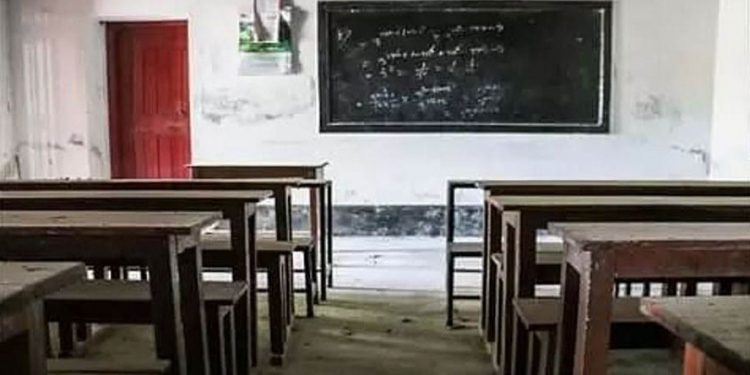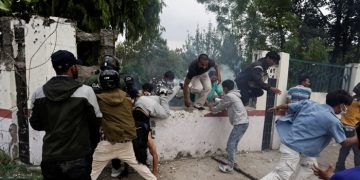Susan Dynarski & Rachel Glennerster
Determining how to balance COVID-19 risks in schools around the world has been tricky. While US school leaders are currently debating whether students should be required to wear face masks, schools in Uganda recently reopened for the first time since the pandemic began. But although students in poorer countries have suffered more severe disruption, with schools closed for twice as long as in rich countries and sparse opportunities for remote learning, the current global cohort of schoolchildren will be adversely affected for decades to come. Without urgent action, the economic cost alone of school closures will be in the trillions of dollars.
Getting students back into the classroom has been critically important, but we still need immediate and targeted action to reduce learning losses. In addition, policymakers need to reflect on the tradeoffs they have made (such as keeping bars and restaurants open while shutting students out of school), account for the cost of these decisions, and establish practices and policies for managing future COVID-19 waves or the next pandemic.
During the past year, we worked with a global group of researchers to gather evidence about the pandemic’s impact on children’s education, and to identify the best ways to repair the damage. Unusually, our panel comprised researchers working on low-, middle-, and high-income countries, and included economists, psychologists, and education specialists. Despite the diversity of our expertise, the lessons we drew were starkly similar.
We found that, around the world, children returned to school following pandemic-induced closures with learning levels below those typical for their age. Studies show large learning losses, from one-third of a year in Ohio to a full year in Karnataka, India. This is worrisome, because evidence suggests that once students fall behind the curriculum, they find it difficult to catch up without additional support. Moreover, disruptions to learning can lead students to drop out of school altogether. In Sierra Leone in the aftermath of Ebola, 17% of girls never re-enrolled once schools reopened, turning a short-term shock into a permanent one.
Much shorter school closures in the past have been shown to reduce children’s learning. In the United States, poorer students tend to slip back each summer when schools close for a couple months. In northern Pakistan, four years after a 2005 earthquake led to temporary school closures, students were one and a half years behind their peers.
Using the relationship between schooling and earnings as a guide, researchers estimate that the COVID-19 school closures thus far could result in $17
trillion in lost lifetime earnings. Further closures in 2022 would increase this figure.
What can we do? The top priority must be to keep schools open. The cost of school closures is unacceptably high, and it is likely to be much longer-lasting than the cost of shutdowns in other sectors of the economy.
The evidence suggests that COVID-19 mitigation measures – including wearing quality masks, vaccinating teachers and eligible students, and providing as much ventilation as possible – can reduce the risk of transmission in schools. With such measures in place, the chance of catching COVID-19 at school is much lower than in most other environments, especially restaurants and bars, where masking is not possible.
But while schools may have reopened, that does not mean business as usual. COVID-19 disruption has aggravated existing education inequalities, making teaching and learning more difficult. That is why schools must first assess just how badly the disruption has hurt students’ learning. School districts then need to allow teachers to adjust instruction to reflect where children are in their learning, not where one might hope they are. This has been one of the main lessons from recent education research. Applying this approach to high-school students in Chicago resulted in a 20% jump in their test scores, and in Uttar Pradesh, India, the number of children who could read a paragraph or story doubled.
To do this, teachers will need support. They now face classrooms with an even wider range of learning outcomes than before, and many must navigate new challenges such as simultaneously juggling remote and in-person teaching. Research shows that providing guided lesson plans can be a cost-effective way to improve learning outcomes. And dozens of studies in high- and low-income countries have shown that individual or small-group tutoring for struggling students boosts scores.
Finally, we should capitalize on some of the innovative education gains that occurred during the pandemic. Across the US, many parents who normally had little interaction with school suddenly had to help their children with online lessons. While this level of involvement is unsustainable over the long term, experiments in France and Chile have shown that children benefit when their parents are more connected to their schools. In Botswana, innumeracy declined by 31% in school districts that stayed in touch with parents and children through text messages and phone calls when schools were closed.
While the pandemic has greatly damaged students’ learning, urgent, large-scale, and effective action by governments and education leaders could stem the tide. Without such intervention, the current level of learning loss caused by school disruptions will lead to trillions of dollars of lost productivity. And new crises are bound to arise. Establishing systems now to keep schools open in such circumstances will help protect our children and our future.
Susan Dynarski is a professor in the Harvard Graduate School of Education. Rachel Glennerster is a professor in the University of Chicago. ©Project Syndicate.






































